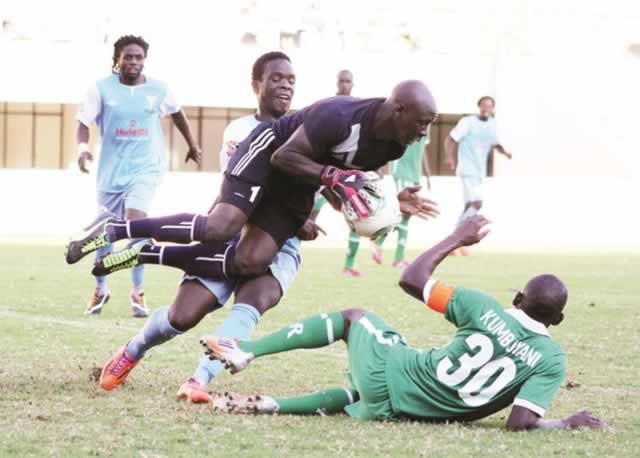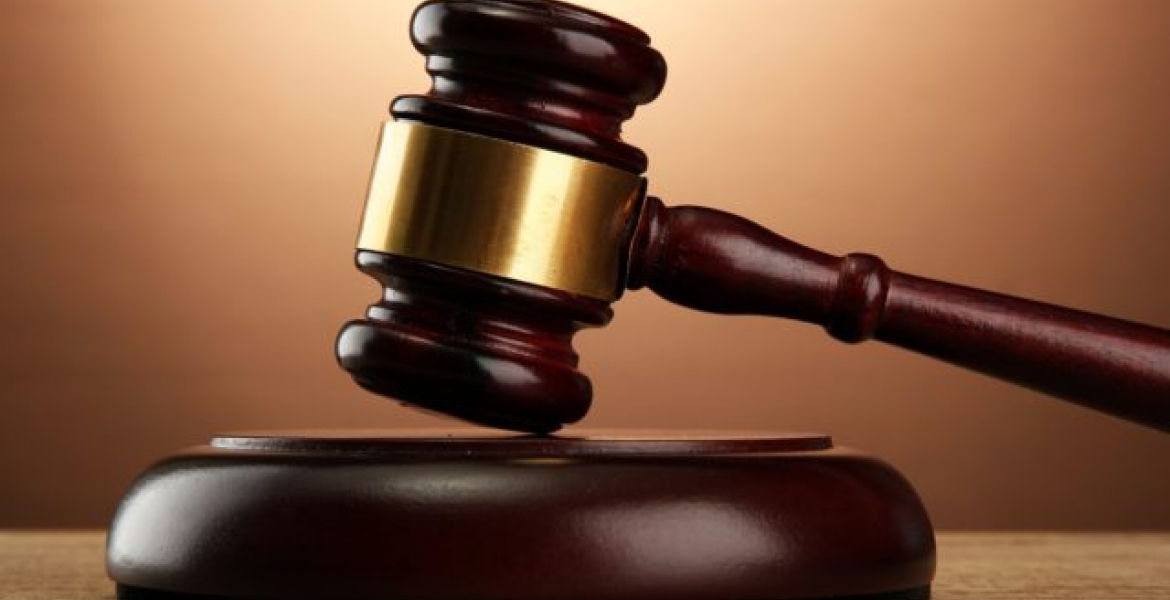Concourt ruling on Criminal Defamation

 REPORTABLE (1)
REPORTABLE (1)
(1) NEVANJI MADANHIRE
(2) NQABA MATSHAZI
v
ATTORNEY-GENERAL
CONSTITUTIONAL COURT OF ZIMBABWE
CHIDYAUSIKU CJ, MALABA DCJ, ZIYAMBI JA,
GWAUNZA JA, GARWE JA, GOWORA JA,
HLATSHWAYO JA, PATEL JA & GUVAVA JA
HARARE, OCTOBER 9, 2013 & JUNE 12, 2014
E. Morris, for the applicant
E. Makoto with him T. Mapfuwa, for the respondent
PATEL JA: The applicants herein were jointly charged with the crime of criminal defamation as defined in s 96 of the Criminal Law (Codification and Reform) Act [Cap 9:23] (the Criminal Law Code). Pursuant to an application under s 24(2) of the former Constitution, the Magistrates Court sitting at Harare has referred the matter to this Court for the determination of certain constitutional questions.
BACKGROUND
The first applicant is the editor of The Standard newspaper, while the second applicant is employed by the same journal as a reporter. On 6 November 2011, they published an article concerning the complainant, Munyaradzi Kereke, who is the founder and Chairman of the Green Card Medical Aid Society (the Society).
The article stated that the Society was unable to pay its members and staff as well as its creditors and that it was on the brink of collapse as its expenditure outstripped its income.
The applicants were subsequently arrested and charged under s 96 of the Criminal Law Code. It was alleged that they published the foregoing statements knowing that they were false and intending to cause serious harm to the reputations of Kereke and the Society.
The application before this Court, as originally posited, was for the offence of criminal defamation as defined in s 96 of the Criminal Law Code to be declared unconstitutional and struck down as being null and void. The same relief was initially propounded by Adv. Morris at the hearing of the matter. However, after it was observed by the Court that the application in its original form did not address the relevant provisions of the new Constitution, the application was confined to the consistency of the offence with the former Constitution.
The relief now sought is for the perpetual stay of prosecution of the applicants in respect of the offence of criminal defamation allegedly committed under the aegis of the former Constitution. It was noted that the decision of the Court in this matter would also affect the prosecution of several other cases involving offences allegedly committed before the advent of the new Constitution.
RELEVANT CONSTITUTIONAL PROVISIONS
Section 18(1) of the former Constitution secures the protection of the law in crisp and concise terms:
“Subject to the provisions of this Constitution, every person is entitled to the protection of the law.”
Section 18(9) guarantees the right to a fair hearing in the determination of civil rights and obligations:
“Subject to the provisions of this Constitution, every person is entitled to be afforded a fair hearing within reasonable time by an independent and impartial court or other adjudicating authority established by law in the determination of the existence or extent of his civil rights or obligations.”
Protection of the freedom of expression is enshrined in section 20(1) of the former Constitution in the following terms:
“Except with his own consent or by way of parental discipline, no person shall be hindered in the enjoyment of his freedom of expression, that is to say, freedom to hold opinions and to receive and impart ideas and information without interference, and freedom from interference with his correspondence.”
Section 20(2) delineates permissible derogations from the freedom of expression under the authority of law:
“Nothing contained in or done under the authority of any law shall be held to be in contravention of subsection (1) to the extent that the law in question makes provision –
(a) in the interests of defence, public safety, public order, the economic interests of the State, public morality or public health;
(b) for the purpose of—
(i) protecting the reputations, rights and freedoms of other persons or the private lives of persons concerned in legal proceedings;
(ii) preventing the disclosure of information received in confidence;
(iii) maintaining the authority and independence of the courts or tribunals or the Senate or the House of Assembly;
(iv) regulating the technical administration, technical operation or general efficiency of telephony, telegraphy, posts, wireless broadcasting or television or creating or regulating any monopoly in these fields;
(v) in the case of correspondence, preventing the unlawful dispatch therewith of other matter; or
(c) that imposes restrictions upon public officers;
except so far as that provision or, as the case may be, the thing done under the authority thereof is shown not to be reasonably justifiable in a democratic society.”
CRIMINAL DEFAMATION
Our law of criminal defamation is essentially an amalgam of Roman-Dutch and English law. The original rationale of the crime of defamation under Roman and Roman-Dutch law is not readily ascertainable. According to Jolowicz: An Introduction to Roman Law (3rd ed.) at p. 171, its rationale may derive from the social insecurity of the patricians, who became increasingly threatened by the mounting power of the plebeians. In 17th and 18th century Holland, the Groot Placaat Boek abounds with enactments on the subject. The reason for such repeated restatements of the offence seems to have been the prevalence of defamatory lampoons, squibs, verses and scurrilous satires, pertaining in particular to persons in authority. See Rex v Harrison and Dryburgh 1922 AD 320 at 327-328.
In Zimbabwe, the offence of criminal defamation and its parameters are prescribed in s 96 of the Criminal Law Code as follows:
“(1) Any person who, intending to harm the reputation of another person, publishes a statement which –
(a) when he or she published it, he or she knew was false in a material particular or realised that there was a real risk or possibility that it might be false in a material particular; and
(b) causes serious harm to the reputation of that other person or creates a real risk or possibility of causing serious harm to that other person’s reputation;
shall be guilty of criminal defamation and liable to a fine up to or exceeding level fourteen or imprisonment for a period not exceeding two years or both.
(2) In deciding whether the publication of a statement has caused harm to a person’s reputation that is sufficiently serious to constitute the crime of criminal defamation, a court shall take into account the following factors in addition to any others that are relevant to the particular case –
(a) the extent to which the accused has persisted with the allegations made in the statement;
(b) the extravagance of any allegations made in the statement;
(c) the nature and extent of publication of the statement;
(d) whether and to what extent the interests of the State or any community have been detrimentally affected by the publication.
(3) Subject to subsection (4), a person accused of criminal defamation arising out of the publication of a statement shall be entitled to avail himself or herself of any defence that would be available to him or her in civil proceedings for defamation arising out of the same publication of the same statement.
(4) If it is proved in a prosecution for criminal defamation that the defamatory statement was made known to any person, it shall be presumed, unless the contrary is proved, that the person understood its defamatory significance.”
PROTECTION OF THE LAW AND RIGHT TO A FAIR TRIAL
In his heads of argument, Adv. Morris submits that the requirement of serious harm in the crime of defamation is vague in that the word “serious” is a comparative adjective which is almost impossible of a benchmark or judicial definition. Consequently, the requirement is unduly subjective and its application will depend on the idiosyncratic views of the parties involved, the investigating officer, the prosecutor and, ultimately, the presiding judicial officer. For these reasons, the offence violates not only the right to protection of the law secured by s 18(1) of the former Constitution but also the right to a fair trial guaranteed by s 18(9).
In my view, these submissions, which were not pursued with any vigour in oral argument, are flimsy and highly unpersuasive. The use of adjectives to define the constituent elements of criminal offences is commonplace and can hardly be regarded as being remarkable. To cite a few examples relating to the actus reus of various offences, there are the crimes of possessing an “offensive” or “dangerous” weapon, causing “serious” or “grievous” bodily harm, and committing “aggravated” indecent assault or theft in “aggravating” circumstances. The interpretation and application of any such defining epithet forms part of the daily diet of judicial officers in the lower courts.
As I read it, the offence of criminal defamation is clearly formulated with sufficient precision in s 96 of the Criminal Law Code so as not to create any ambiguity or vagueness as to the conduct that is proscribed as being punishable. Moreover, the specific factors that may entail harm of a “serious” nature are succinctly articulated in s 96(2) to afford adequate guidance to the trial court in determining whether or not the alleged harm to a person’s reputation is sufficiently serious to constitute criminal defamation. These include the extent to which the accused has persisted with the defamatory allegations, the extravagance of the allegations, the nature and extent of the publication, and whether and to what extent the interests of the State or any community have been detrimentally affected thereby. Although these factors are not exhaustive, they tend to enhance rather than diminish the prospect of the accused receiving a fair trial.
In the premises, I am satisfied that the challenge against the constitutionality of criminal defamation vis-à-vis the rights enshrined in ss 18(1) and 18(9) of the former Constitution is devoid of merit and cannot be upheld.









Comments